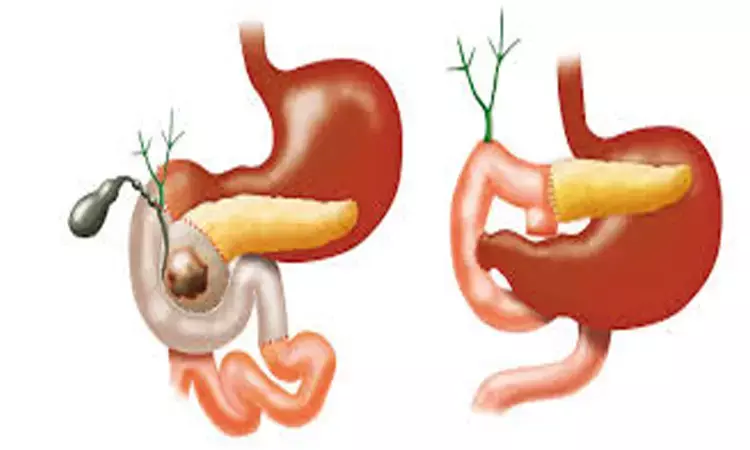- Home
- Medical news & Guidelines
- Anesthesiology
- Cardiology and CTVS
- Critical Care
- Dentistry
- Dermatology
- Diabetes and Endocrinology
- ENT
- Gastroenterology
- Medicine
- Nephrology
- Neurology
- Obstretics-Gynaecology
- Oncology
- Ophthalmology
- Orthopaedics
- Pediatrics-Neonatology
- Psychiatry
- Pulmonology
- Radiology
- Surgery
- Urology
- Laboratory Medicine
- Diet
- Nursing
- Paramedical
- Physiotherapy
- Health news
- Fact Check
- Bone Health Fact Check
- Brain Health Fact Check
- Cancer Related Fact Check
- Child Care Fact Check
- Dental and oral health fact check
- Diabetes and metabolic health fact check
- Diet and Nutrition Fact Check
- Eye and ENT Care Fact Check
- Fitness fact check
- Gut health fact check
- Heart health fact check
- Kidney health fact check
- Medical education fact check
- Men's health fact check
- Respiratory fact check
- Skin and hair care fact check
- Vaccine and Immunization fact check
- Women's health fact check
- AYUSH
- State News
- Andaman and Nicobar Islands
- Andhra Pradesh
- Arunachal Pradesh
- Assam
- Bihar
- Chandigarh
- Chattisgarh
- Dadra and Nagar Haveli
- Daman and Diu
- Delhi
- Goa
- Gujarat
- Haryana
- Himachal Pradesh
- Jammu & Kashmir
- Jharkhand
- Karnataka
- Kerala
- Ladakh
- Lakshadweep
- Madhya Pradesh
- Maharashtra
- Manipur
- Meghalaya
- Mizoram
- Nagaland
- Odisha
- Puducherry
- Punjab
- Rajasthan
- Sikkim
- Tamil Nadu
- Telangana
- Tripura
- Uttar Pradesh
- Uttrakhand
- West Bengal
- Medical Education
- Industry
Avoiding nasogastric decompression safe after pancreaticoduodenectomy: JAMA

France: Avoiding nasogastric tube decompression (NGTD) after pancreaticoduodenectomy (PD) is safe, suggests a recent study in the journal JAMA Surgery. According to the study, there were no significant differences in the postoperative complications in patients subjected to systematic NGTD and no NGTD after PD.
Standardization of PD although has improved postoperative outcomes but morbidity remains high. Avoiding NGTD that is already outdated in major abdominal surgery is suggested after PD by fast track surgery programs. But there is a lack of high-level evidence, especially in regard to its safety.
Damien Bergeat, University of Rennes, Rennes, France, and colleagues assessed whether the absence of systematic NGTD after PD reduces postoperative complications, in a randomized clinical trial.
The IPOD study (Impact of the Absence of Nasogastric Decompression After Pancreaticoduodenectomy) was an open-label, prospective, single-center, randomized clinical trial. This was conducted at a high-volume pancreatic surgery university hospital in France. The researchers screened a total of 155 patients aged 18 to 75 years and required PD for benign or malignant disease. Key exclusion criteria were previous gastric or esophageal surgery and severe comorbidities.
The patients were randomly assigned in the ratio 1:1 to receive systematic NGTD or no nasogastric decompression and were followed up until 90 days after surgery. For patients without NGTD, the NGT was removed immediately after surgery, whereas for patients with NGTD, the NGT was removed 3 to 5 days after surgery.
The primary endpoint was the occurrence of postoperative complications grade II or higher using the Clavien-Dindo classification.
Key findings of the study include:
- From January 2016 to August 2018, 125 screened patients were considered eligible for the study, and 111 were randomized to no NGTD (n = 52) or to NGTD (n = 59).
- No patient was lost to follow-up. The 2 groups had similar patient demographic and clinical characteristics at baseline.
- The median (interquartile range) age was 63.0 years in the group with NGTD (38 [64.4%] were males) and 64.0 years in the group without NGTD (31 [59.6%] were males).
- The postoperative complication rates grade II or higher were similar between the 2 groups (risk ratio, 0.99).
- Pulmonary complication rates (risk ratio, 0.59) and delayed gastric emptying rates (risk ratio, 1.07) were not significantly different between the groups.
- Median (interquartile) length of hospital stay for patients without NGTD was not significantly different compared with those with NGTD (10.0 vs 12.0 days).
"Our study found no significant difference in postoperative complication occurrence of Clavien-Dindo classification grade II or higher between systematic NGTD and no NGTD after PD, suggesting that avoiding systematic nasogastric decompression is safe for this indication," concluded the authors.
The study, "Nasogastric Decompression vs No Decompression After Pancreaticoduodenectomy: The Randomized Clinical IPOD Trial," is published in the journal JAMA Surgery.
Dr Kamal Kant Kohli-MBBS, DTCD- a chest specialist with more than 30 years of practice and a flair for writing clinical articles, Dr Kamal Kant Kohli joined Medical Dialogues as a Chief Editor of Medical News. Besides writing articles, as an editor, he proofreads and verifies all the medical content published on Medical Dialogues including those coming from journals, studies,medical conferences,guidelines etc. Email: drkohli@medicaldialogues.in. Contact no. 011-43720751


